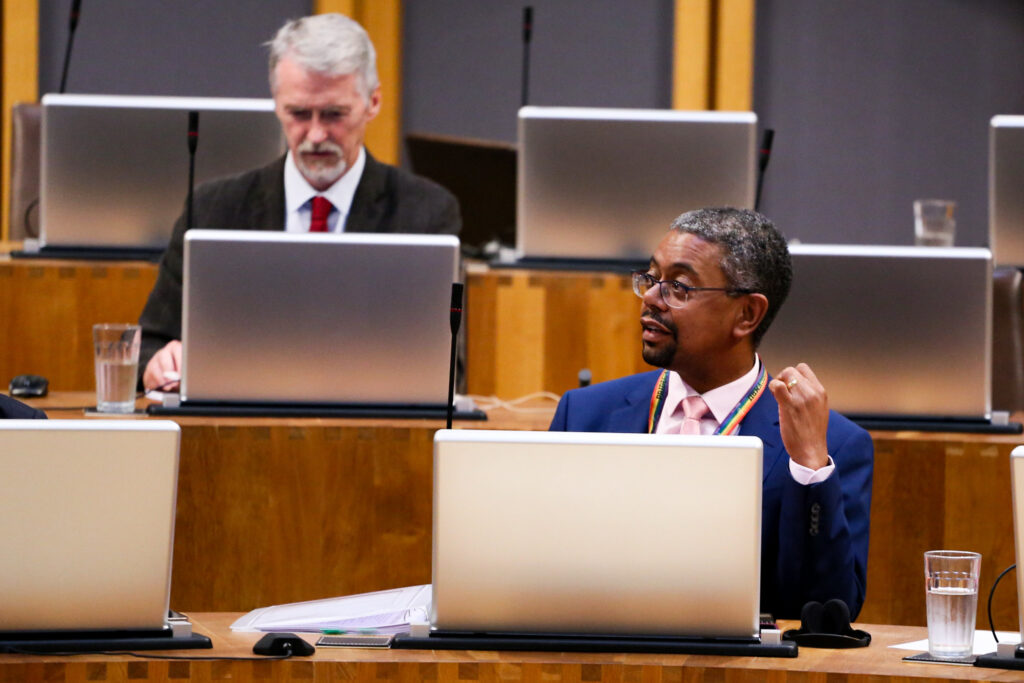Anne Meikle says there are improvements needed if the Future Generations Bill is going to make a difference.
What difference will the Wellbeing of Future Generations Bill make?
I chair the Sustainable Development Alliance of more than 20 Welsh charities, social enterprises and community groups – and we think it’s important to answer this question.
It was raised many times during the recent committee scrutiny of the Bill.
Put simply, we believe that it should help ‘future proof’ Wales – so our grandchildren can at least have the same quality of life as us. Moreover, we believe that through this Bill, we can make changes that ensure a better quality of life, for ourselves and for our children.
Last week we published a report which explains some of the positive changes that a strong Bill can deliver. With the right amendments, this law can make a real difference on issues such as jobs, poverty and climate change.
The recently published Environment and Sustainability Committee Stage 1 report agreed with the Alliance’s calls for amendments to strengthen the Bill. I believe our report complements this. It shows why it is important for everyone with an interest in the Bill to work together. Through collaboration, we can build a Bill of which we can all be proud and which will deliver real benefits for Wales and wider world.
Here I’ll set out some examples of what an effective Bill can do. I’ll also raise some questions that we hope AMs will ask the Minister, concerning how the Bill will deliver these benefits for people and the planet.
The Green Jobs Revolution
Wales is starting to reap the benefits of the green economy.
Take the recent study by Innovas Consulting. It revealed that, since 2006, ‘renewable energy technologies’ and ‘environmental goods and services’ sectors in Wales have grown. Employment has increased from 22,160 to 30,100. The study concluded that support from Government was an important part of that success.
One Low Carbon business success story is the Cenin Group in Bridgend. They are creating a cluster of renewable energy generation projects and producing a cement product which contains only 5% of the carbon of ordinary cement.
The Bill should change the mindset of Government and public bodies about their support for such companies. From economic development policies and business advice to a strong legal framework, planning system and procurement, we must integrate our efforts. That way, we can ensure our economy can both face the challenges ahead and prosper.
A strong Well-being of Future Generations Act would also send a strong signal on the direction Wales is heading. It would give companies the confidence to invest in green industries in Wales.
Will Welsh Government amend the Bill to ensure its economic goal is unequivocal about reducing our resource use to levels compatible with healthy global life support systems?
Using our purchasing power for good
The Welsh Public sector spends over four billion pounds a year buying goods and services. We want more of that money to be spent in a way that helps people and nature.
The Welsh Government paved the way in 2009 with its catering contract which gave greater value to ethical considerations. Because the contract was so large, it meant that suppliers were willing to make more effort to get hold of more ethically sourced products. That included local meat and dairy products to support local farmers as well as Fairtrade tea and coffee.
The potential is huge. For example, if every school in Wales made the same progress in Fairtrade sales in their tuck-shops as the two leading schools, then Fairtrade sales in Wales would be boosted by more than £600,000. This could transform the lives of people across the world.
Despite some good practice, this is not nearly widespread enough across the public sector. A strong Well-being of Future Generations Act should ensure that all purchasing decisions are made with consideration of wider benefits for people and nature.
Will the Welsh Government make changes to the Bill so that it’s clear that the duty covers the delivery of public sector functions and decisions, including financial decisions and procurement?
Warm Homes for everyone
Too many of us are struggling to afford to heat our homes.
A household is officially in fuel poverty if the people in it have to spend more than one tenth of their income to stay warm. Around 30% of households in Wales were in fuel poverty in 2012.
Government investment in improving home energy efficiency can have many benefits: reducing greenhouse gas emissions; tackling fuel poverty; creating jobs and boosting local economies.
Welsh Government schemes such as Arbed have demonstrated this. But this programme is not enough to make a significant impact on fuel poverty or our greenhouse gas emissions.
By bringing the 728,000 worst performing houses in Wales up to an energy rating of D, we would reduce the number of households in fuel poverty by 40% and reduce greenhouse gas emissions from housing by 40%.
Such integration across policy areas should produce more effective outcomes from the same expenditure.
Will the Welsh Government commit, in the Bill, to setting ‘outcomes’ for their goals, which will clarify for everyone the scale and urgency of the changes we need to make?
In the coming days and weeks, we look forward to seeing these questions answered and addressed.
We also hope to see the Government and AMs act on the Environment and Sustainability Committee’s report, which recommended a number of changes.
I’m confident that with the right amendments, we will see a Wellbeing of Future Generations Bill that makes a real difference to people and nature.





Comments are closed.